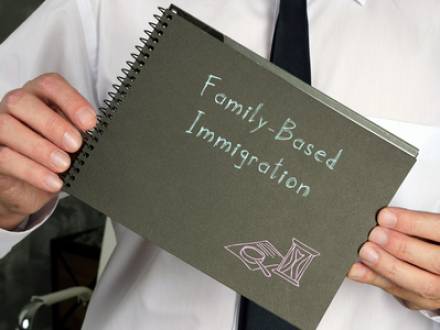Family Preference Immigration: A Breakdown of F1 to F4 Visas
 While current immigration policies are changing rapidly, historically, much of U.S. immigration policy revolved around family reunification. The family preference visa categories (F1 through F4) provide a legal pathway for specific family members of U.S. citizens and lawful permanent residents to immigrate to the United States.
While current immigration policies are changing rapidly, historically, much of U.S. immigration policy revolved around family reunification. The family preference visa categories (F1 through F4) provide a legal pathway for specific family members of U.S. citizens and lawful permanent residents to immigrate to the United States.
If you want to sponsor a relative, it is essential to understand how these visa categories are prioritized, as well as the current wait times and eligibility requirements. When you have an experienced Herndon, VA immigration attorney as your advocate, navigating the immigration process can be much simpler.
What Are Family Preference Visas vs. Immediate Relatives?
The primary differences between immediate relatives and family preference categories in U.S. immigration lie in visa availability and waiting times. Immediate relatives of U.S. citizens, including spouses, minor children, and parents, have unlimited visas, and there are no numerical limits. Family preference categories have a limited number of visas and can have long waiting times. Each category of family preference visas has its own set of requirements and annual limits on the number of visas issued, including:
- The F1 visa category is for unmarried sons and daughters of U.S. citizens who are 21 years of age or older, and is considered "first preference."
- The F2 visa category is for spouses, minor children, and unmarried adult sons and daughters (21 years of age or older) of lawful permanent residents. F2 visas are further divided into F2A for spouses and minor children, and F2B for unmarried adult sons and daughters, and are considered second preference.
- The F3 visa category is for married sons and daughters of U.S. citizens, along with their spouses and minor children, and is considered third preference.
- The F4 visa category is for brothers and sisters of U.S. citizens, but only when the citizen is at least 21 years old. This visa category is considered the fourth preference and includes spouses and minor children of the U.S. citizens' brothers and sisters.
There is a limited number of annual family preference visas, and significant waiting times can occur, especially for categories F3 and F4. The U.S. Department of State Visa Bulletin provides information on visa availability, along with processing times for each category.
How Are Priority Dates for Family Preference Immigration Visas Assigned?
The priority date for family preference immigration visas is usually the date the U.S. Citizenship and Immigration Services (USCIS) receives the immigrant visa petition (Form I-130). Form I-130, the Petition for Alien Relative, is typically used for family-sponsored preference visas. Only one option can be selected for Part 4 (Question 61 or 62) when indicating whether the beneficiary of the visa will seek adjustment of status inside the U.S. or consular processing.
The priority date establishes a "place in line" for visa processing and is based on the priority date and the number of visas available in each category. The priority date establishes a place in line for visa processing. The Visa Bulletin publishes visa availability, which is based on the priority date and the number of visas available for each category.
Documentation and Requirements for Family Preference Visas
Along with the Form I-130 petition, proof of the qualifying relationship is required. The petitioner will be required to provide a birth certificate, passport, or Certificate of Citizenship. Proof of relationship can be established through a marriage certificate, birth certificate, adoption certificate, or other documents that prove the relationship.
The beneficiary of a family preference visa must have a valid passport, while the petitioner must demonstrate his or her ability to support the beneficiary financially. The beneficiary must also undergo a medical examination by an authorized physician, and a police certificate must be obtained that provides clearance from the country where the beneficiary resided. Form DS-260 is the necessary online immigrant visa application.
Contact a Fairfax County, VA Immigration Lawyer
If you are considering a family preference visa, it is important to speak to a knowledgeable Herndon, VA immigration attorney from Immigration Legal Advisors, PLLC. Attorney Ruiz offers a full-service, supportive law firm with over 20 years of experience in immigration matters. Call 571-441-2233 to schedule your consultation. Attorney Ruiz speaks both English and Spanish.





